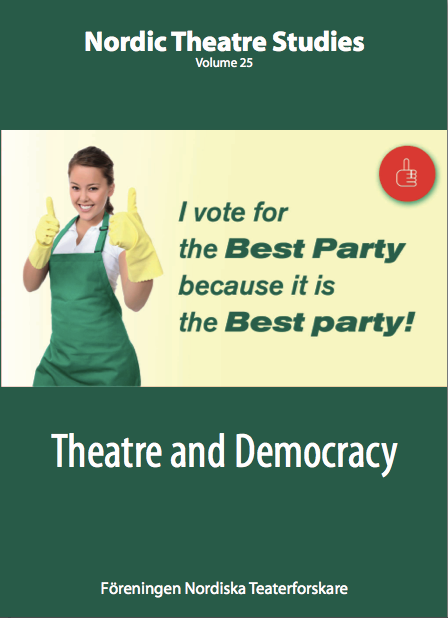How Theatre Develops Democracy
The Case of Theatre NO99
DOI:
https://doi.org/10.7146/nts.v25i1.110900Abstract
Twenty years after regaining its independence, Estonia is proud of its economic record, but faces challenges concerning the development of democracy. Into this situation, a small theatre company, Theatre NO99, led by stage director Tiit Ojasoo, has recently introduced a new style of postdramatic political theatre that raises questions about capitalism, civil society, racism, nationalism, the energy crisis and other sensitive issues. Furthermore, the company’s European tours and collaborations with German and British companies have brought European debates to the Estonian stage. Recently, however, NO99 came up with two unparalleled and overtly political ‘one time actions’. In 2010, Unified Estonia, a fictitious political movement, exposed the populism of the leading parties and drew 7200 people to its ‘convention’, thus making it one of the largest theatre events in modern European theatre history. Two years later, NO99 staged a ‘first reading’ of a semi-documentary play about a funding scandal that engulfed the prime minister’s party, thereby contributing to provoke a series of civic and political events. This case study looks at how the theatre company has introduced itself as a morally sensitive institution (in the spirit of the German Enlightenment) and helped spark debates about national and democratic values in Estonia.
Downloads
Published
How to Cite
Issue
Section
License
The copyright belongs to the authors and Nordic Theatre Studies. Users can use, reuse and build upon the material published in the journal but only for non-commercial purposes. Users are allowed to link to the files, download the files, distribute the files on a local network (preferably by links), upload the files to local repositories if their institutions require them to do so, but not republish the files without proper agreements with the journal and the author.

